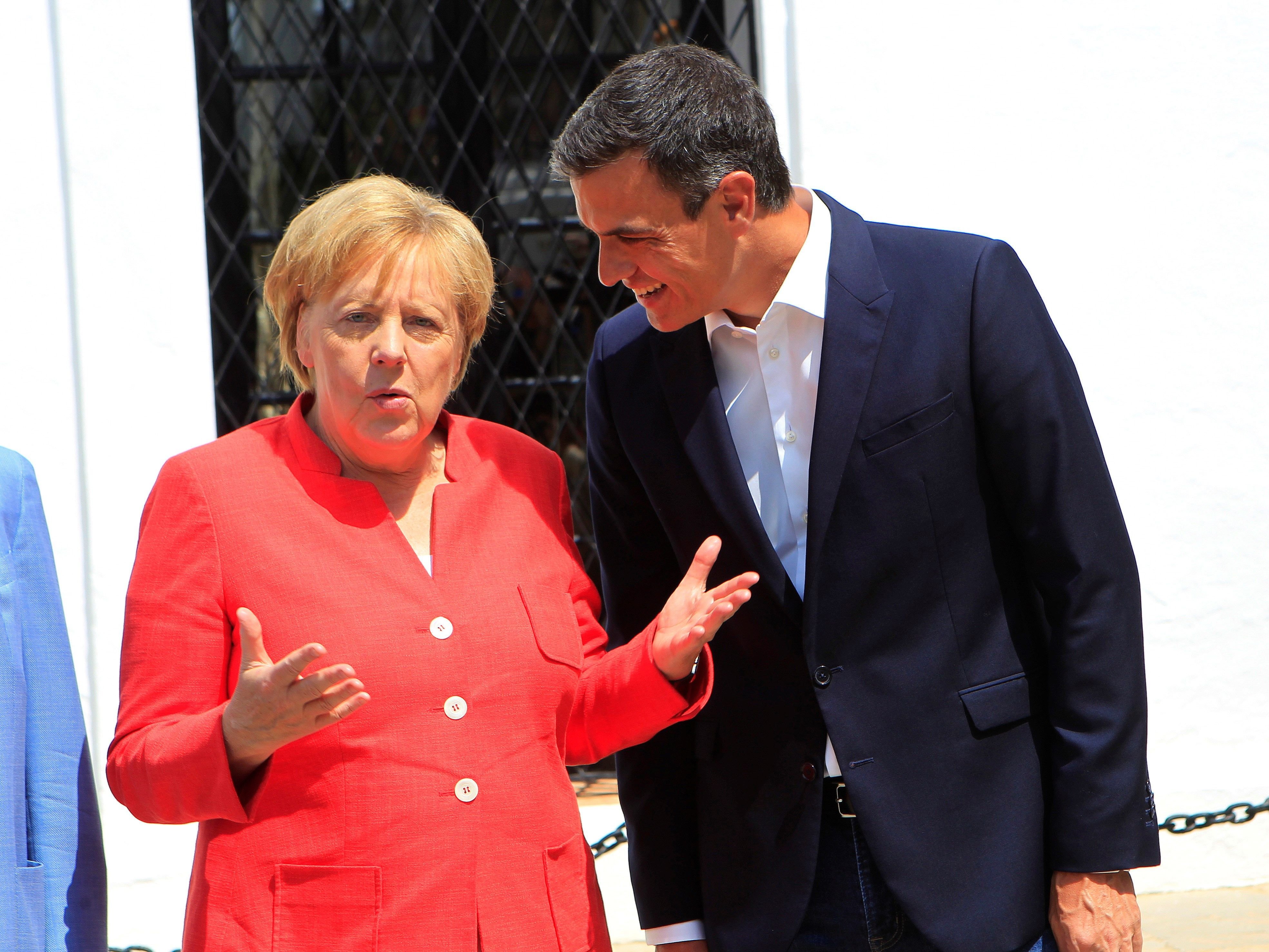A foundation linked to the CDU, Chancellor Angela Merkel's party, has hit hard against the conditions set by the Spanish acting prime minister, Pedro Sánchez, to the other parties for his investiture, and suggests that it is impossible for him to govern in minority. The Christian-Democrat Foundation has warned the Spanish prime minister in a report that politics "is the art of compromising" and that in the political game of parliamentary democracy "there is usually no single winner." These are common standards in Europe, but not in Spanish politics.
In an analysis entitled Political uncertainty after the failure of government formation in Spain, the CDU says that "in all parliamentary democracies it's virtually impossible for a party that has less than a third of the seats in Parliament to form a government on its own", as Sánchez hopes to. He attributes this reasoning to Sánchez's defeat in the Spanish Congress after merely securing a regional deputy's favourable vote, which they consider predictable. In their opinion, the Spanish prime minister "did not correctly understand the result of the last general elections, or simply wanted to ignore it".
"In the 28th April election, PSOE obtained a relative majority of 123 of the 350 seats in the Spanish Congress, with 28.7% of the votes. Sánchez was the winner and the one who obtained the most votes. But the election result clearly shows two things: first, the fragmentation of the party system makes the formation of a coalition government inevitable for the first time since the recovery of democracy in 1978. The possibility that the Socialists could make a government alone with the occasional support of regional parties, as the PSOE and the PP had done until 2015, is no longer possible, because of the fragmentation of the Spanish Congress. And second, Spanish voters want a government that represents the political centre. A stable, coherent and effective government was only possible with a coalition between two of the major parties, PSOE with Ciudadanos, or PSOE with PP," they say.
The foundation, on the other hand, does not believe an agreement between PSOE and Podemos to be possible, because it would not have a majority and would depend on pro-independence parties, who they remind Sanchez already voted against his budget.
Instead of adapting to these real conditions, the CDU states that the Spanish prime minister has tried an "even more ambitious strategy" and wanted -"maybe he still wants"- to form a single-party government. For that reason, Sánchez asked for the support of other parties in exchange for nothing, and they conclude that he tried to govern on the basis of decrees and knowing that a confidence motion would be impossible. Yet obtaining support for a budget remained uncertain. "This strategy was risky. Especially because it is expected that nationalist parties will put an end to any constructive collaboration with the [Spanish] government after the verdict on the accused Catalan leaders is made public," they say.
The foundation accuses Sánchez of "not having done anything" to obtain the support of Cs or PP for his investiture, and instead believes that he has "insulted" them by calling them far-right. It also says that there were no real "serious negotiations" with the leader of Podemos, Pablo Iglesias, and that there was no talk of specific policies. It also believes that Sanchez is still not making any suitable invitations to start "constructive talks" with any party.
Merkel's party makes a pessimistic assessment of Spain's political future. "Nobody knows at this time whether the political blockade will be overcome, and how, before the 23rd September deadline. One of the first conditions for this would probably be for political actors to accept that politics is also the art of making agreements and that there is not a single winner in the political game of a parliamentary democracy. This is a difficult learning process for political actors in Spain. The country and its citizens shall have to pay a high price," they conclude.

